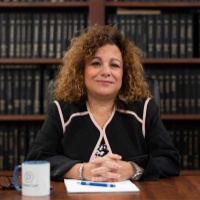Bay Shore Divorce & Family Law Lawyer, New York
Sponsored Law Firm
-
 x
x

Click For More Info:
-
Law Office Of Darren M. Shapiro
99 Jericho Tpke Suite 300G Jericho, NY 11753» view mapDivorce & Family Law Long Island Divorce Lawyer
Darren M. Shapiro, Esq. provides effective and reasonable solutions for matrimonial and family law issues as a divorce attorney, family lawyer or divorce mediator.
800-952-1081
John Peter Brooke
✓ VERIFIEDBankruptcy & Debt, Divorce & Family Law, Foreclosure, Wills & Probate, Real Estate
My law firm is a full-service practice specializing in the areas of bankruptcy, foreclosure defense, mortgage/loan modifications as well as other area... (more)
Jodi Ann Donato
✓ VERIFIEDDivorce & Family Law, Estate
Jodi Donato is a practicing lawyer in East Islip, NY handling family law matters.
Mel Jacoby
Accident & Injury, Bankruptcy & Debt, Criminal, Divorce & Family Law
Status: In Good Standing
FREE CONSULTATION
CONTACTElizabeth Jodi Grosso
Prenuptial Agreements, Family Law, Divorce, Child Custody, Adoption
Status: In Good Standing Licensed: 20 Years
Barry V. Pittman
Lawsuit & Dispute, Divorce & Family Law, Criminal, Accident & Injury
Status: In Good Standing Licensed: 48 Years
 Darren Shapiro Jericho, NY
Darren Shapiro Jericho, NY


